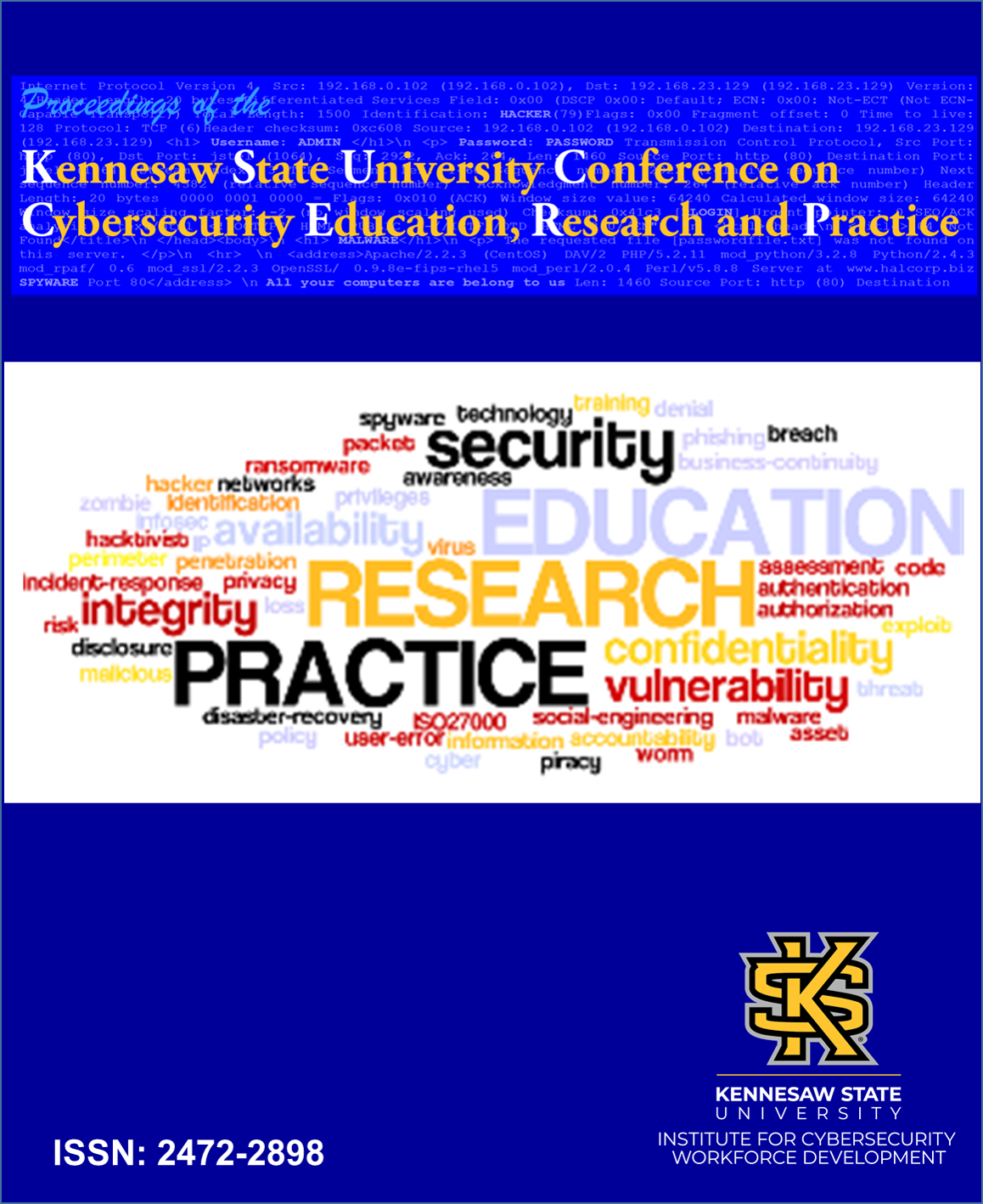Effectiveness of the Cybersecurity Training– A Brain-Computer Interface Perspective
Start Date
30-10-2021 3:00 PM
End Date
30-10-2021 3:30 PM
Location
Online Zoom Session
Abstract
Effective information awareness training is critical part of security program in an organization. In this paper, we studied the effectiveness of text-based and video-based security awareness training delivery methods using a three-pronged approach. In addition to measuring participants’ perceptions and testing knowledge transfer after post-training, we analyzed the emotional parameters of the participants during the training using a Brain Computer Interface (BCI) device such as Emotiv EPOC+ Neuroheadset. We conducted an experiment in realistic setting. Our study showed that both text-based training group and video-based training group scored well in post-training knowledge transfer quiz. The text-based training group indicated higher perceived training effectiveness, enjoyment of delivery methods and engagement. For emotional analysis, all participants seemed to be engaged, showed interesting in the training, relaxed, and less stressed about the training. But the differences were not statistically different. The video-based training group is significantly more stressed and more focused than the text-based training group. Based on our knowledge, this study is first of its kind to investigate the effectiveness of the information security awareness training. The implications and limitation of our research are also discussed.
Effectiveness of the Cybersecurity Training– A Brain-Computer Interface Perspective
Online Zoom Session
Effective information awareness training is critical part of security program in an organization. In this paper, we studied the effectiveness of text-based and video-based security awareness training delivery methods using a three-pronged approach. In addition to measuring participants’ perceptions and testing knowledge transfer after post-training, we analyzed the emotional parameters of the participants during the training using a Brain Computer Interface (BCI) device such as Emotiv EPOC+ Neuroheadset. We conducted an experiment in realistic setting. Our study showed that both text-based training group and video-based training group scored well in post-training knowledge transfer quiz. The text-based training group indicated higher perceived training effectiveness, enjoyment of delivery methods and engagement. For emotional analysis, all participants seemed to be engaged, showed interesting in the training, relaxed, and less stressed about the training. But the differences were not statistically different. The video-based training group is significantly more stressed and more focused than the text-based training group. Based on our knowledge, this study is first of its kind to investigate the effectiveness of the information security awareness training. The implications and limitation of our research are also discussed.



Comments
This paper is the result of the ICWD 2021 summer research funding.